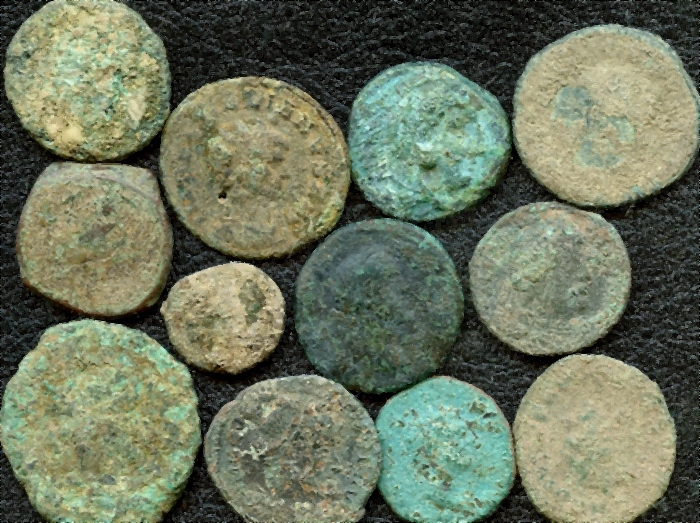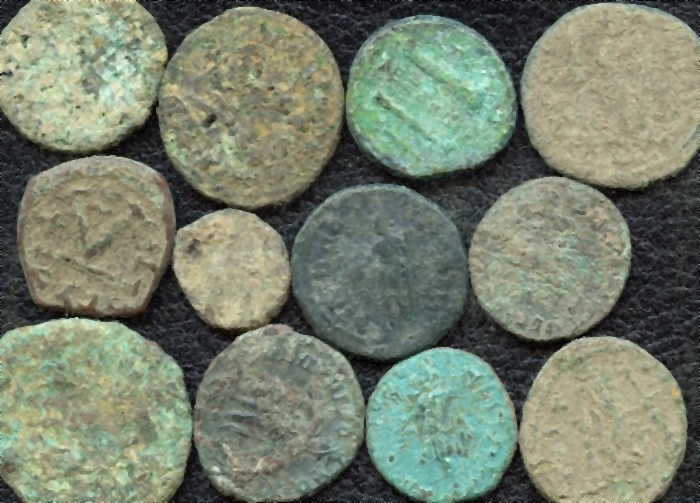Coins are as I received them, and initially (9/13) weigh 46.8 grams. I just grabbed a few from my little pile randomly.


The filters I had running were nearly black after adding 100 or so new uncleaned coins, so I had to change them last night around 2am after a 10 hour shift (and I haven't had a day off for nearly 3 weeks), so I'm surprised I haven't lost more lol.
I think one can see the difference in the amount of dirt easily enough, and the coins were only soaking for just less than 24 hours. The Byzantine had a partial patina to begin with, so it wasn't my technique that removed the patina (see scan). Believe it or not, there are a couple coins that I would consider ready for finishing... just after 24 hours of soaking. I'm telling you... this works!.
Unfortunately, it works a bit too fast. I have 60-70 coins awaiting attribution, around 50 waiting to be entered into Moneta and flipped, and probably 300 coins still soaking but are ready to be finished.